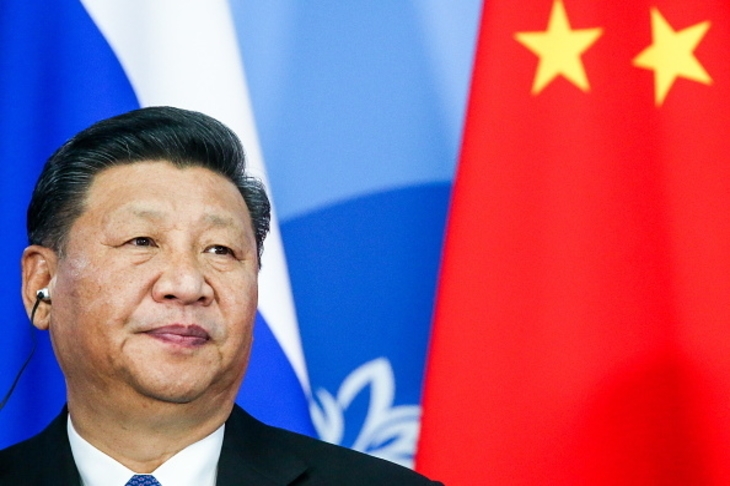Does President Xi’s first address of the new year spell trouble for Taiwan? In a 30 minute speech on Taiwan, Xi used much fiercer language than his predecessors on Taiwan’s reunification. Journalists have reported it as ‘chest-beating’ and ‘threatening’. Phrases like ‘the reunification of Taiwan…is the inevitable requirement of the rejuvenation of the Chinese nation’ and ‘we do not promise to renounce the use of force’ certainly don’t bode well. But the speech is actually interesting for a different reason: it reveals why the Chinese are so obsessed with Taiwan. Many outside China don’t understand why a country of 1.7 billion people with the world’s second largest economy is so obsessed with a tiny island of 23 million people. The answer isn’t and never has been about economics. As Xi makes clear in his speech, it’s all about identity.
To understand why China does what it does in foreign policy, westerners must understand the country’s recent history. Just before the rude arrival of Western guns and Western drugs in the first Opium War in 1840, Chinese royals were still billing themselves as the children of the dragon who governed over the prosperous and powerful Middle Kingdom. Imagine the shock, then, when China realised it was no longer a world power. Hell, with Japan’s industrial revolution, it wasn’t even the most powerful in Asia. Since then, China has overthrown its royals, endured foreign invasion and colonial carving up, suffered poverty, more civil war, and a dash of Communist madness (though Xi doesn’t talk about that so much). The result is a Chinese mindset that has a chip on its shoulder, to say the least. And Taiwan, as millennials say, is awfully ‘triggering’. To modern Chinese, it is the last reminder of their country and their ancestors on their knees; it is the last piece of the puzzle that hasn’t fit back in.
Whether Xi keenly feels this trauma himself (and there’s a good chance that a nationalist like him does), and/or knows how to push all the right buttons, his speech laid it on thick. He returns to history again and again, using phrases like the ‘Chinese civilisation’ and talking about the ‘motherland’.
‘Since 1949, the Chinese Communist Party, the Chinese government, and the Chinese people have always regarded the settlement of the Taiwan issue and the complete reunification of the motherland as an unshakable historical task.’
There is a hint of manifest destiny here, one that necessarily involves Taiwan. And where there is a shared history, China and Taiwan also have a shared ethnicity. Again and again, Xi calls the Taiwanese ‘our comrades, our compatriots, our friends’. He says that ‘blood is thicker than water’, and that ‘Chinese don’t fight Chinese’:
‘The compatriots on both sides of the strait are a family. The cross-strait affairs are the family affairs of the compatriots on both sides of the strait. Of course, they should also be discussed by the family. Peaceful reunification is equal consultation and reconciliation.’
But the flipside of equating Taiwan to family comes quickly. Culturally, the Chinese frown upon airing dirty laundry in public – family problems should be sorted out behind closed doors. If Taiwan is family, then it stands to reason that cross-strait relations are to be discussed only by Taiwan and China. In other words: America, please shut up and go away. Xi makes the point explicit:
‘The fact that Taiwan is a part of China, that both sides of the strait belong to one China, is something that nobody, with any amount of power, can change. The compatriots on both sides of the strait are all Chinese, blood is thicker than water, their natural desire to cooperate and common ethnic identity is something that nobody, with any amount of power, can change.’
As Xi’s words show, Taiwan is much more important to Beijing than just a neighbouring island or a thriving economy that it can add to its territorial collection. In fact, money barely features at all. The Chinese obsession is all about identity. And as Brexit Britain knows full well, identity can be just as potent a force. Don’t expect Beijing to give up on Taiwan any time soon.







Comments